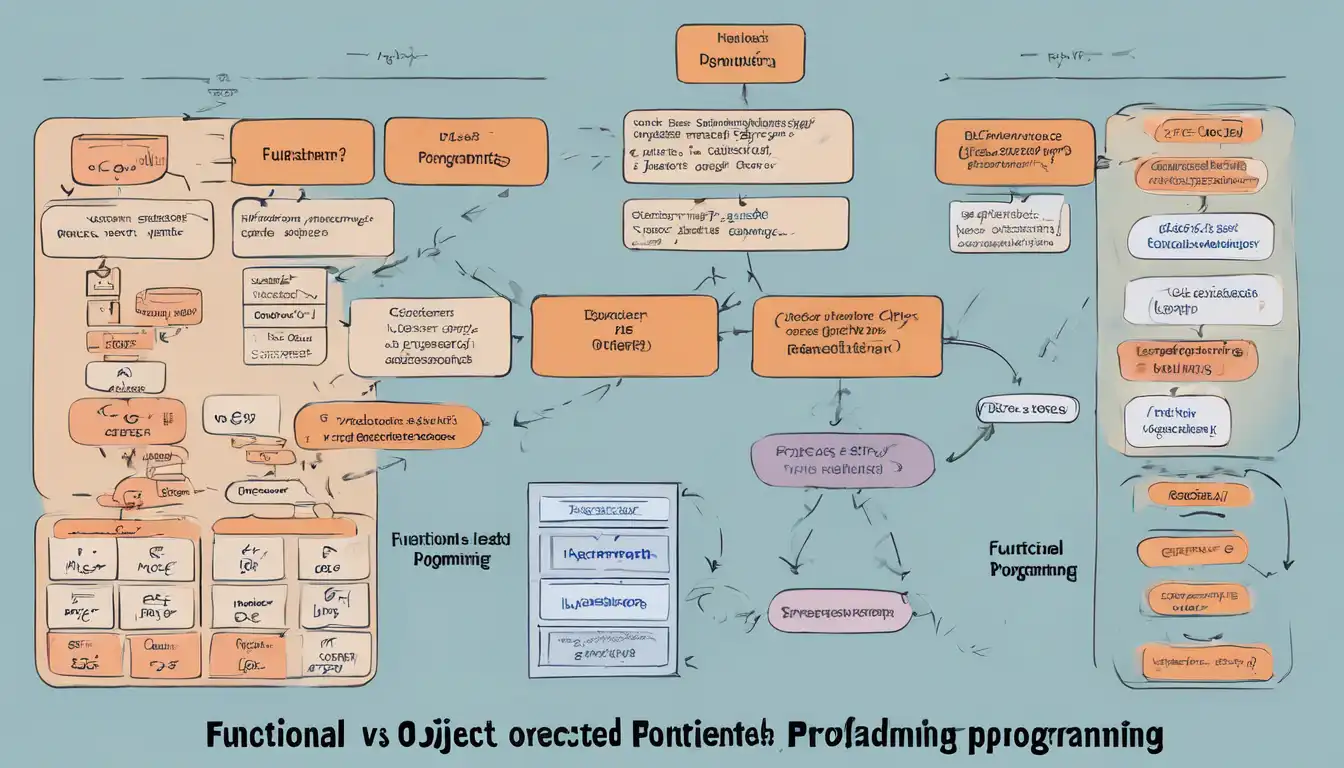Introduction to Programming Paradigms
In the world of software development, understanding the fundamental programming paradigms is crucial for building efficient and scalable applications. Two of the most popular paradigms are Functional Programming (FP) and Object-Oriented Programming (OOP). This article delves into the core differences, advantages, and use cases of each to help you make informed decisions in your projects.
What is Functional Programming?
Functional Programming is a paradigm that treats computation as the evaluation of mathematical functions and avoids changing-state and mutable data. It emphasizes the application of functions, in contrast to the imperative programming style, which emphasizes changes in state.
- Immutability: Data is immutable, meaning it cannot be changed after it's created.
- First-class functions: Functions are treated as first-class citizens, allowing them to be passed as arguments, returned from other functions, and assigned to variables.
- Pure functions: Functions have no side effects and return the same output for the same input.
What is Object-Oriented Programming?
Object-Oriented Programming is a paradigm based on the concept of "objects", which can contain data, in the form of fields, and code, in the form of procedures. OOP focuses on the objects that developers want to manipulate rather than the logic required to manipulate them.
- Encapsulation: Bundling of data with the methods that operate on that data.
- Inheritance: A mechanism for creating new classes from existing ones.
- Polymorphism: The ability to present the same interface for differing underlying forms.
Comparing Functional and Object-Oriented Programming
While both paradigms aim to improve code readability, reusability, and scalability, they approach problems differently. FP is ideal for applications where the flow of data is paramount, such as in data processing or concurrent applications. OOP, on the other hand, shines in scenarios where modeling real-world entities and their relationships is necessary.
When to Use Functional Programming
Functional Programming is best suited for:
- Applications requiring high levels of concurrency.
- Projects where data immutability is a priority.
- Scenarios where functions need to be highly reusable and composable.
When to Use Object-Oriented Programming
Object-Oriented Programming is more appropriate for:
- Applications that involve complex relationships between entities.
- Projects that benefit from modularity and encapsulation.
- Scenarios where code reusability through inheritance is desired.
Conclusion
Choosing between Functional and Object-Oriented Programming depends on the specific needs of your project. By understanding the strengths and weaknesses of each paradigm, you can select the most suitable approach or even combine them to leverage the benefits of both. For more insights into programming paradigms, explore our guide on programming paradigms.
